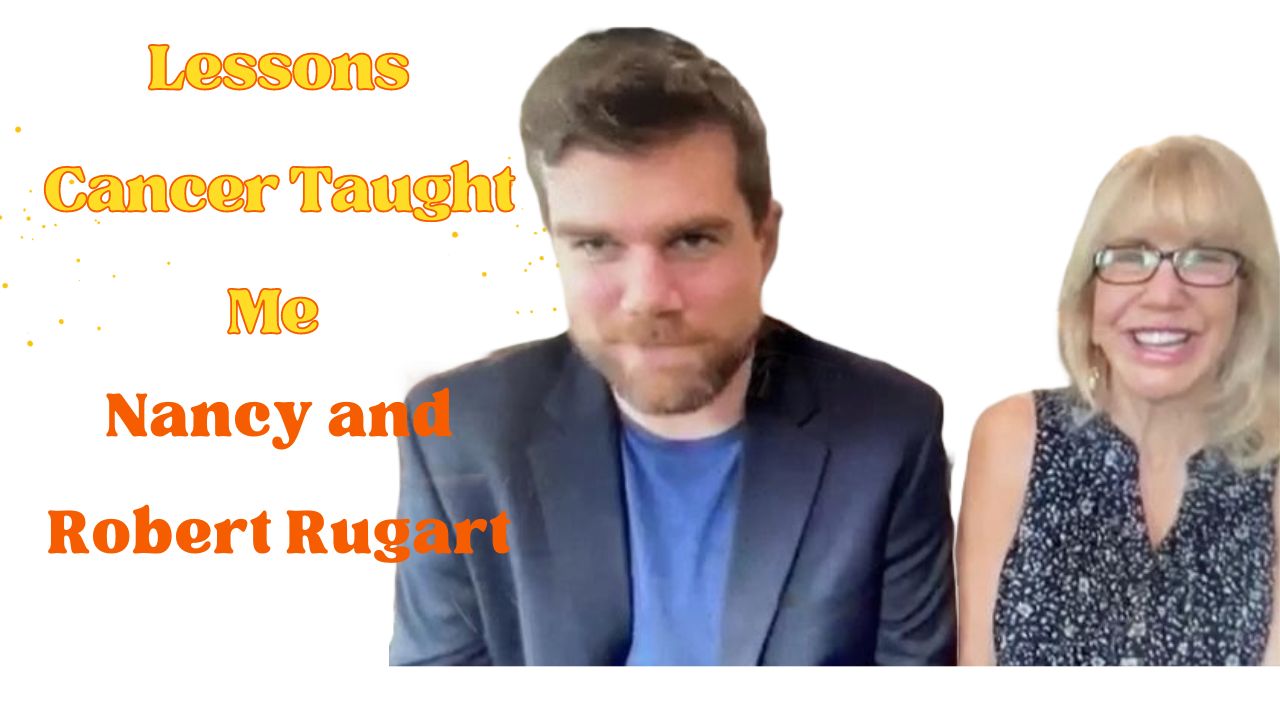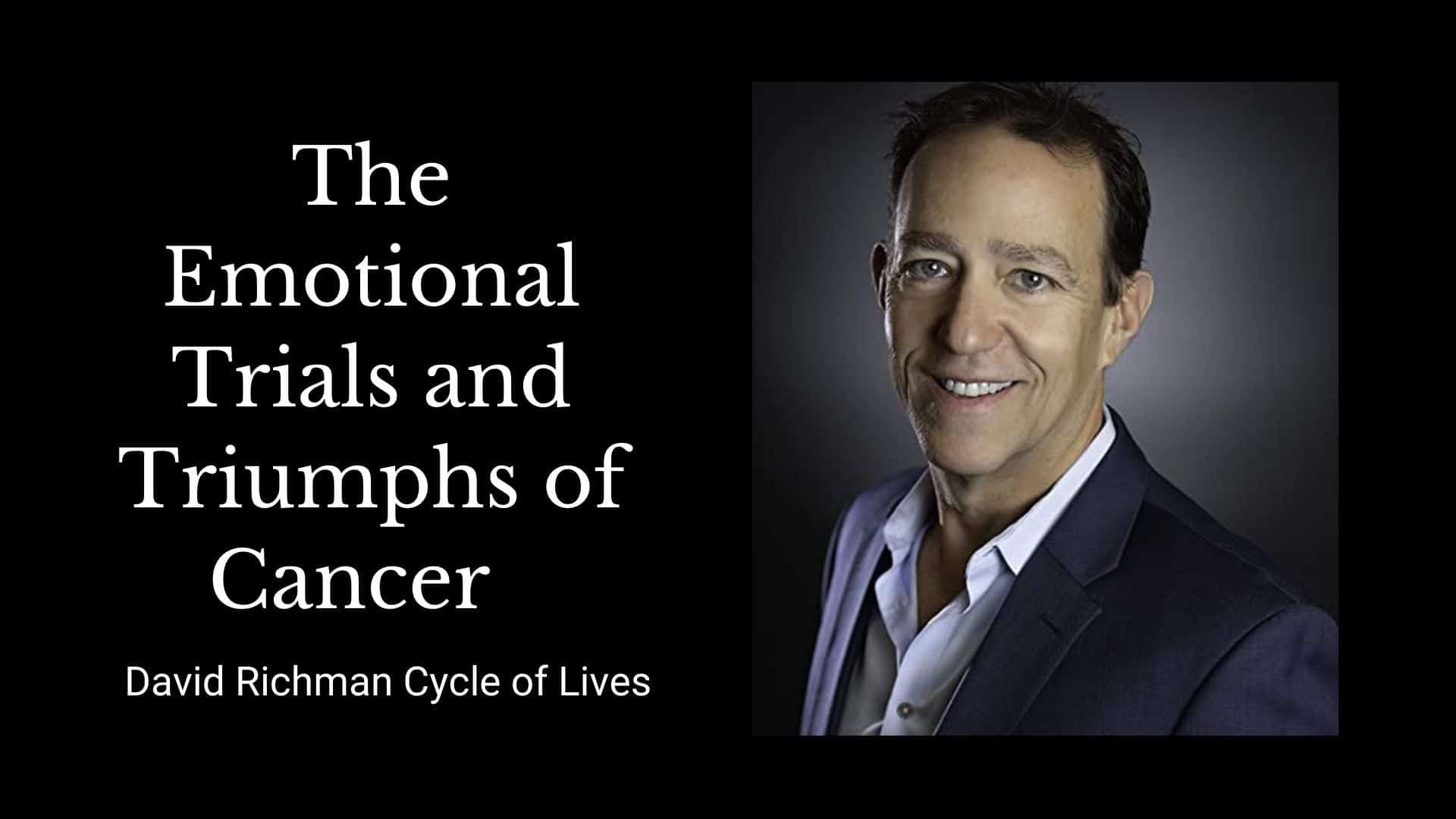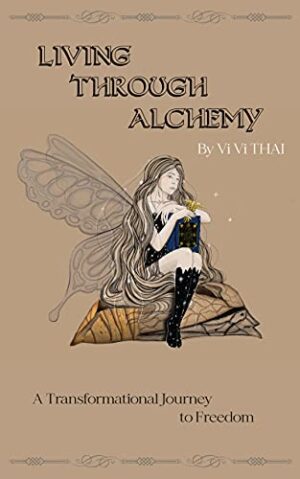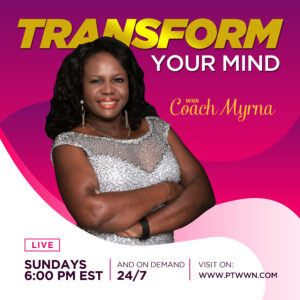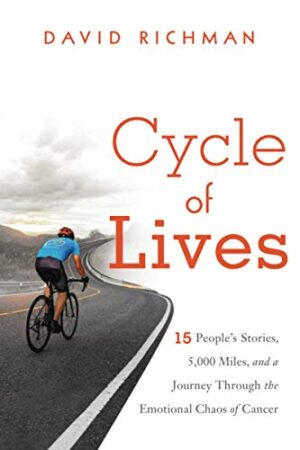Nancy Rugart Plummer, a survivor of, stage four ovarian cancer, and, metastatic brain cancer, shares her powerful story and the lessons she learned from her journey. She discusses her diagnosis, treatment, and the challenges she faced along the way. Nancy emphasizes the importance of early detection and self-advocacy in cancer prevention and treatment.
She also highlights the role of caregivers and the need for support and understanding during the cancer journey. Nancy and Robert Rugart discuss the lessons they learned from Nancy's cancer experience and how they have applied those lessons to their lives. They emphasize the importance of getting affairs in order, finding reasons to fight, and taking life one step at a time.
Download the podcast here:
Key Takeaways:
- Early detection is crucial in cancer survival, and it is important to be proactive in seeking medical attention and advocating for oneself.
- Caregivers play a vital role in supporting cancer patients and helping them navigate their journey.
- Getting affairs in order, such as creating a will and discussing end-of-life plans, is important for everyone, not just cancer patients.
- Finding reasons to fight and focusing on the joys of living can provide motivation and strength during difficult times.
- Taking life one step at a time and being open to change and adaptation can help overcome challenges and find new opportunities for growth.
Introduction About The Guest(s):
Nancy Rugart Plummer is a survivor of stage four ovarian cancer and metastatic brain cancer. She is the founder of Becoming the Best You and is a wellness and relationship coach, author, and columnist. Nancy helps men and women navigate life challenges to become upbeat, unstoppable, and unafraid. Her inspiring book, “Becoming the Best You: The Lessons Cancer Taught Me,” is due out this month.
Robert Rugart is the co-founder of Becoming the Best You. He left his job in finance to help write the book with his mother, Nancy, and to inspire and empower caregivers based on his own experiences as a caregiver for his mother, grandfather, and wife.

Cancer diagnosic stage 4 ovarian cancer
Myrna: All right. Well, Nancy, before we started recording, I mentioned that I am reading the book Outlive right now by Dr. Peter Attia, and his book is basically talking about the four horsemen, which are the top killers right now. And cancer is one of the top ones, number one is Heart disease.
So what he talks about is early detection as a survival necessity. So I'm going to start off by saying you got diagnosed with, stage four ovarian cancer, which is really not early detection, and you had, metastatic brain cancer, which means that the cancer is already spread. I am extremely curious to know your story. Let's start with the, ovarian cancer. How was it diagnosed? How did you treat it? And then we can go on to the, metastatic brain cancer.
Nancy: It was definitely a marathon. It all started in the fall of 2015, and I had been dealing with bloating for months on end. I'd been dealing with needing to urinate all the time, and yet at the same time being constipated up to a week. And I knew that something was wrong. I didn't know what it was. So I made an emergency appointment with my OBGYN of 25 years. And I felt, since he was a superstar in the world of gynecology, that he would be the person I could trust and give me answers to my pain.
He took one look at me with my hair done and my makeup and my beautiful outfit, expressed my concerns in this dismissive voice. He said, Nancy, look at you. You're too pretty and you've been a perfect specimen of health. I reeled inside my brain. I was thinking, oh, my God, what does wearing makeup and a pretty outfit have to do with my health? So from there, we fought a little bit head to head, and he agreed with me that he would give me an ultrasound in a couple of weeks. So I didn't tell anyone about my problem.

Cancer misdiagnosis
Anyway, I didn't share with anyone and I never heard back. I called them ten days later and they just said, your ultrasound came out clean. Your scan is clean. So in their minds, I was healthy. And for seven months I was quiet, albeit in pain.
And then in June of 2016 so seven months later, I asked a friend to take me into the emergency room I knew I couldn't go on, and I knew that I was probably at death door.
Myrna: What was happening then that you needed to go to the emergency room?
Nancy: As the months went on, I found myself being able to eat less and less, and my exhaustion was continuing, and I was feeling more and more bloated. In my mind I kept thinking, oh, my goodness, you're not exercising enough, not doing enough core work. Even the day when I went into the emergency room, I must confess that I was doing windsprints down the lane because I was growing this abdomen. Little did I realize that it was 67oz of cancerous fluid in me, that's a lot of ounces for someone that's not the heaviest person to start with.
Anyway, I'm in the emergency room, and the on call doctor did a quick ultrasound with me and came back with discharge papers.
Myrna: So obviously what you're saying is this cancer cannot be picked up through an ultrasound.

Stage 3 ovarian cancer diagnosis
So I looked at him, and I gathered the strength that I could. I was really sick, and I just not I haven't shared with anyone, but I think I'm dying. You have to save me. So we agreed together to do a CT scan, and he came back 3 hours later and said, ma'am, you have, stage 4 ovarian cancer.
Robert: Obviously, she had very extensive, ovarian cancer, at the time. I think when she was first diagnosed, it was late stage three. We hadn't found proof that it metastasized anywhere outside of where they deem stage three. So she was three C, and she had cancer ranging from, obviously, her pelvis all the way up to the base of her diaphragm at the bottom of her lungs. And so she needed an eight hour long surgery with, eight different specialists.
Myrna: What was the surgery for?
Nancy: So what was it A bilateral salpingo-oophorectomy is the surgical removal of both ovaries and both fallopian tubes to treat ovarian cancer. The goal of the procedure is to remove any cancerous cells and prevent the chance for recurrence.
They had to take out 22 inches of my bowels. So I was given an ostomy. That was its own journey.
Myrna: All right, so let's fast forward to the end. Sure. When did you get the all clear that the cancer was gone? I'm assuming that after all your treatments and I'm assuming you took chemotherapy as well.
Nancy: Yeah, I had chemo every week for my chemotherapy. As long as the chemotherapy. So six months.
Myrna: At the end of the six months, they said, you're cancer free. So everything they took out the cancer stuff, and so why did they say it was stage four? Because I understand stage four means that it's moved.
Nancy: And I just want to share to every, cancer survivor, out there and caregiver that when the bell rings, you ring your bell in your remission. Cancer is not over. All the scars and all the wounds and all the issues you've had in your life, especially for me, was just ashes. I had lost my father, lost my marriage, lost my home, and it was a tough journey. Fast forward. I was so frail. I moved to Miami, packed up my stuff, where one of my dearest friends was welcoming me, and I could never have dealt with the cold and the weather in Philadelphia.

Metastatic Brain Cancer diagnosis
Seven months later, I go to Rome with a friend, on vacation, great time. And two days later, I collapse from a grand mal seizure. They took me to a public hospital in Rome, and I awaken 16 hours later to see six men in diapers and a gown. And I looked down at myself. I was also in a gown and diapers. I have no idea why I'm in there. No one's speaking in English. There's no air conditioning. It was a bit of Hitchcock movie. And I'm thinking, oh, my God, I must have cancer again.
4 hours later, the neurologist comes in and speaks to me in English and says, you suffered a grain mal seizure. You have a brain tumor. My daughter flies in, bless her heart. She comes in so sweet. She flies into Rome and helps me coordinate me to my transfer to Miami and undergo brain surgery.
So then they do the surgery, and they say, you have, metastatic brain cancer. Before they did the brain surgery, they said, because your brain tumor is the size of a ping pong ball and where it is located, you may be paralyzed on your right side, and you may never speak again.
They remove the tumor, and they say, yes, it is a metastasis of, ovarian cancer. The median lifespan is five months. And I'm now still alive after five years. One of the lone survivors.
Myrna: Thank be to God. Wow. Yeah. Because that's basically what I'm learning right now. If you don't catch these things early, they move. Right. And when they move, for instance, you had all these surgeries, but there's no way the surgeon can pick the ones that have moved. Wow.

Becoming a caregiver for cancer patients
Robert: You know, cancer is a war that you don't want to fight on your own. I think there were two big things. Obviously, so many things helped, notably, listening to her doctors and paying attention to medical advice and being an advocate for herself were all huge things.
From the caregiver side, I think it was very important. Like we were saying, the exercise thing to push yourself right when you're going through chemotherapy, especially when she was going through it, chemo is basically poisoning your body and hoping that the cancer dies before the rest of your body does, which normally happens because cancer is voracious and eats up lots of stuff, including the poison a lot faster than the other cells. So there's a reason why we do it.
But if you're going to win that fight, you need to stay as healthy as you can. Keep pushing yourself, keep trying to exercise when you can. And exercise doesn't have to be running wind sprints. It can be. At her lowest point, exercise was breathing into a spirometer, A spirometer is an apparatus for measuring the volume of air inspired and expired by the lungs. A spirometer measures ventilation, the movement of air into and out of the lungs. The spirogram will identify two different types of abnormal ventilation patterns, obstructive and restrictive, doing single leg lifts or single weightless arm curls in her hospital bed.
Nancy: You know, I had pneumonia, and Robert got the call and was like, mom's going to die of pneumonia before she dies of chemo, right? And so he comes in, and obviously, I didn't have the wherewithal to even get that spirometer and practice my breathing and get stronger. And I tell you, he tried everything. He was cajoling me, he was pushing me, but he kept figuring out, and I'm begging caregivers alike to help your patient to learn how to push themselves when you're not there, but do every tactic you can, because he's right. If I didn't get strong enough, the chemo would have killed me.
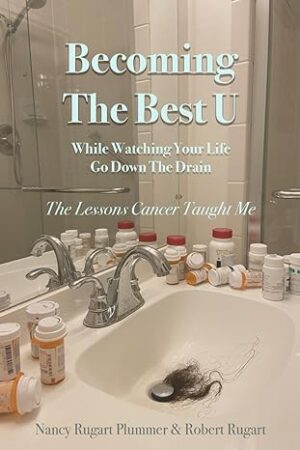
Lessons Cancer taught me
Tell us about your book “Becoming the Best U – The Lessons Cancer Taught Me”
Nancy: And you know, though, I think that what was so important as Robert being my coach in writing and then him coming from the caregiver side is, know, my story wasn't written to share why I survived or how I've endured. It's about the lessons I learned.
One lesson is getting your affairs in order, and I think that everyone, whether they're going through cancer or not, should all learn, know, get your affairs in order and what that looks like. And I'd like Robert to discuss that because that's. Something that my caregivers had to talk to me about because all I could focus on was living and surviving. And now I just say to everyone, oh, don't wait until you're sick.
Robert: But if there's some cause that you really want to contribute to your plan right now could be to give them money from your estate. But if you make it past whatever you're going through, your plan could be to give them time from your future self. When you're planning a remembrance of your life or a funeral, however you want to phrase that, deciding what it is you want to be remembered for is so important.
Not only does it let you reminisce about the past and the wonderful things you've done, it also maybe I want to be remembered for something I haven't done yet. Certainly if you are near the end of life, or potentially near the end of life, it can be hard to plan for something that you haven't done yet. But you can at least, like I was saying, realize the direction you want things to go. You can make them important in your will, whatever. And then if you get through this struggle, then you can start directing your life and point your life in that way. And I think that's really important.
Conclusion
All right, guys, this was a very interesting conversation. I learned a lot from you. I am very blown away by your story surviving, stage four ovarian cancer, Nancy, Very blown away by your son and your daughters and the people that held you up when you needed holding. You know, I'm glad that you wrote the book and I'm glad that you came on the show to encourage those listening, whether they have a family member like myself that's going through, cancer treatments, right now or they're a survivor, and just because it's, Cancer Awareness Month.
Early detection is basically what saves lives. Go get your screening. Do the things that you need to do to improve your chances of survival. Awesome. So your book is going to be out in October, and I'm assuming that it'll be available on Amazon.
Robert: That is correct, yeah. Our website is, becomingthebestU.com
Additional Resources
https://blog.myhelps.us/the-emotional-trials-triumphs-cancer/
